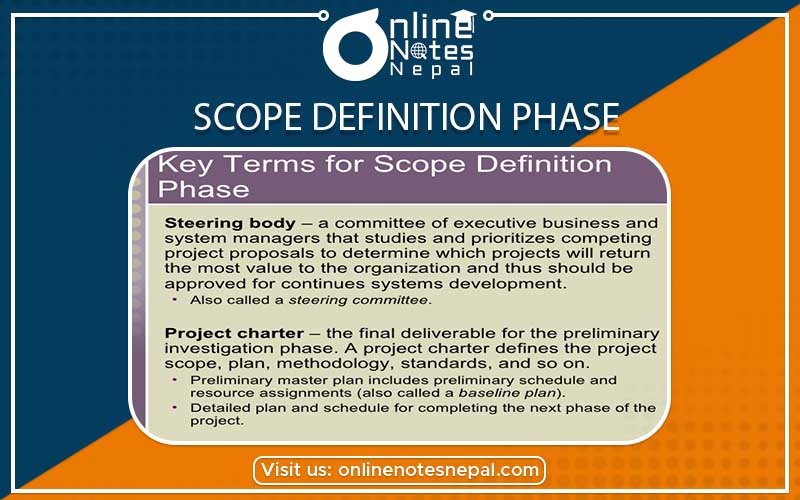Published by: Nuru
Published date: 16 Jun 2021

Scope definition phase in project management is defined as the process of obtaining information required to commence a particular project and using such information to create a detailed description of the project and product. It also involves knowing about the features of the product that will meet the requirements of the stakeholder.
Scope refers to the detailed set of deliverables or features of a project. These deliverables are derived from a project’s requirements. Project Scope can be defined as The work that needs to be accomplished to deliver a product, service, or result with the specified features and functions.
Most business analysts have created documents that contained a section called “Scope”. The scope is very important and can often be misused. The scope simply refers to the work that is required to fix a problem or solve an opportunity. The responsibility for defining the project scope is often assumed by the project manager.
The problem with a work break structure is that it doesn’t provide a clear enough picture of the functional requirements, and as we all know, “the devil is in the details.” Project managers must focus on the broad picture, and should rely on a business analyst to focus on the scope of the requirements: Who will use the system? What do they need to do? What information is needed to do it?
The Scoping Phase begins when the Project Manager assembles a multi-disciplinary project team that includes other appropriate stakeholders who evaluate the project and the available resource materials and proceeds to investigate the project with respect to their individual disciplines.
The project team defines the required project deliverable, the working budget, and the schedule for designing and developing the project. At the conclusion of the Scoping Phase, the Project Manager will seek approval of the Scoping Report from the project sponsor to deliver the project within established technical requirements on time and within budget.